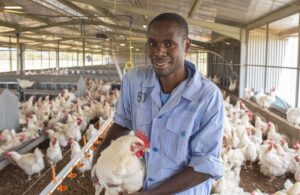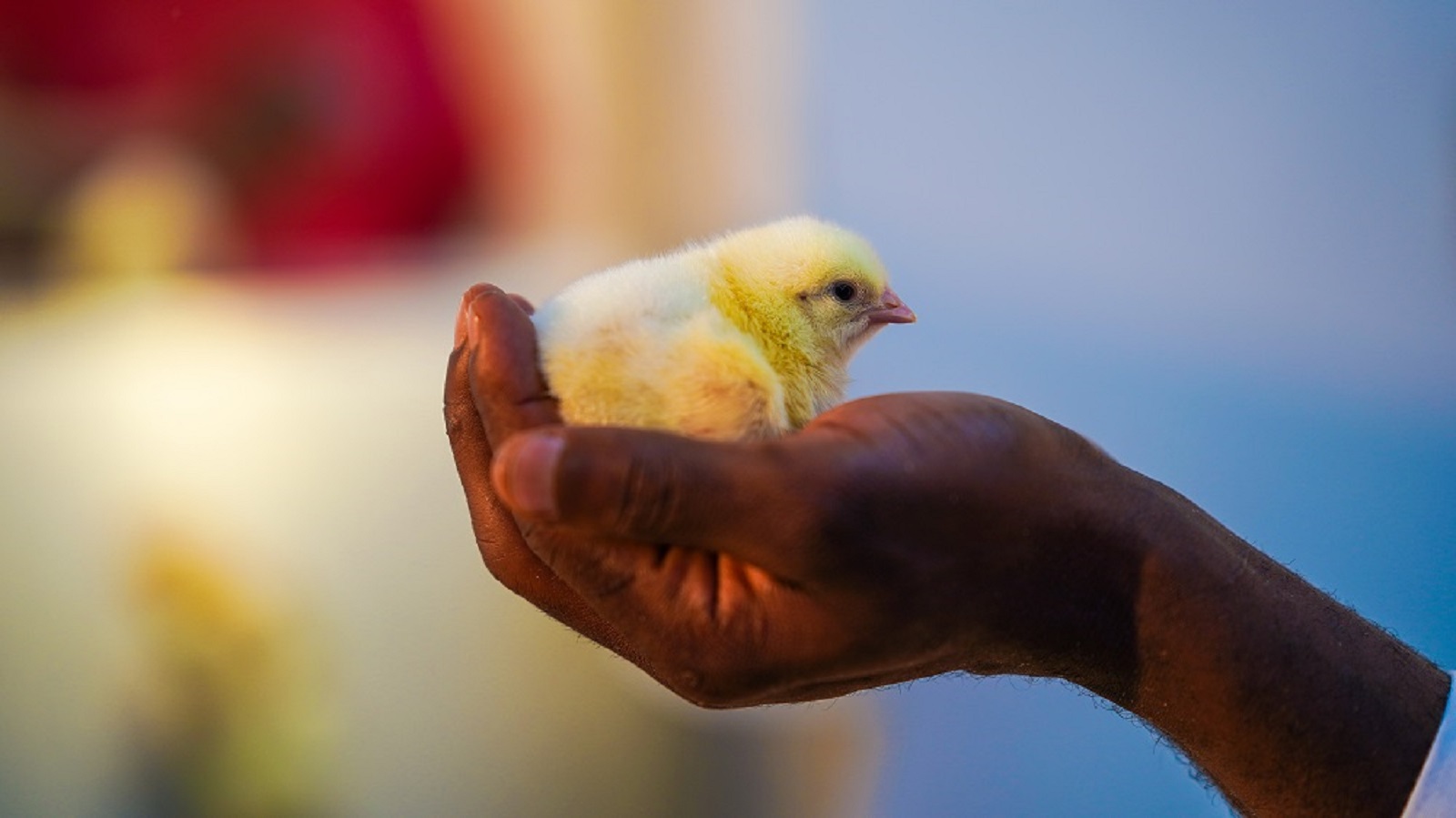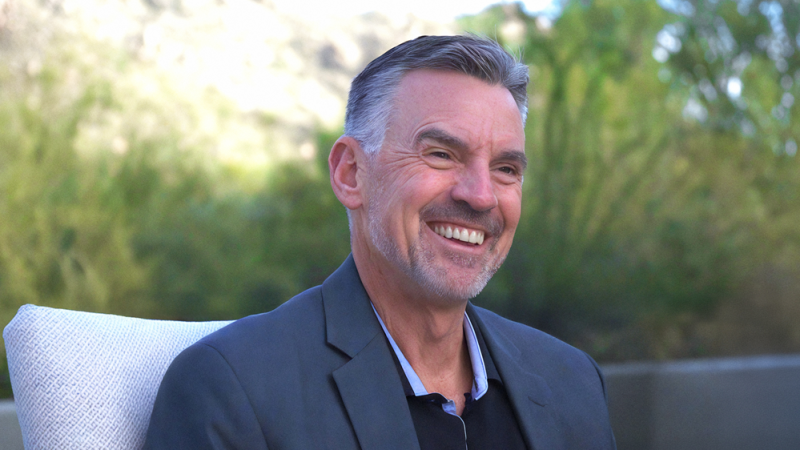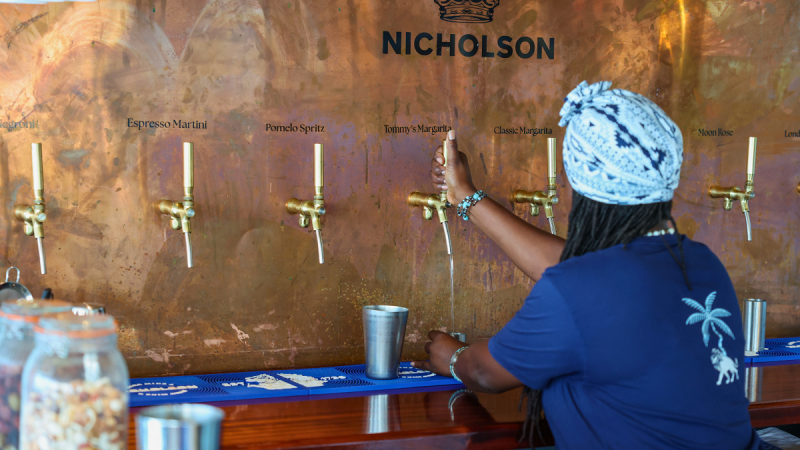Kenchic is an integrated poultry business in Kenya and East Africa. It was founded in 1983 to drive the poultry sector in Kenya by working to support and develop small-scale farmers, build businesses, and lift people out of poverty to create a healthy, sustainable protein source. It is a mission that remains close to the company’s heart.
There is heritage in terms of the company and its longevity in the industry,” says Managing Director Jim Tozer. “We are the oldest by far, and we are defined by our staff and our people, our culture of development and wanting to be sustainable in everything we do.”
Kenchic is doing this while operating under a number of challenges, from the geopolitical environment to climate difficulties.
“From a geographical point of view, we see cyclical droughts, high costs in the production of raw materials, and it is not a particularly enabling environment for business sometimes,” Tozer tells us.
 Kenchic can negotiate this environment thanks to a strong, company-wide strategic approach.
Kenchic can negotiate this environment thanks to a strong, company-wide strategic approach.
“We have a three, five, and ten-year focus going forward. We build up that strategic thinking process by looking at historical data. We see what happens post-election, and during the drought periods which we face every three years,” Tozer explains. “We are focused on developing strong cross-functional teams. I try to pull people from different parts of the organisation to look at the challenges and opportunities and strategize with plans for various scenarios.”
This means closely following the market pricing of raw materials, both globally and nationally, while also tracking other protein sources. Kenchic also benefits from being part of a larger group, African Poultry Development, which has a presence in Uganda, Tanzania and Zambia as well as Kenchic in Kenya. That gives the company good leverage to move products around as and when there are times of high or low demand.
A Holistic Approach
Kenchic applies a similarly strategic approach to its recruitment and staff development.
“We have a strong succession planning process. We focus on this consistently and constantly. The aim is to grow people from within the company upwards, promoting wherever possible,” Tozer says. “There are graduate trainee programs and times where we will employ through a recruitment agency or directly ourselves with a stringent interviewing process. Once we find those candidates, they have a six-month orientation process throughout the company, graded by various management professionals within our business.”
Recruitment is based on finding people with the right foundation “attitude and aptitude” as Tozer calls it, and then skills and training are added onto that.
“We also run a brain mapping, for want of a better word, with psychometric testing of existing personnel to understand where they lie on the emotion and rational side,” Tozer explains. “We run mentoring and coaching for middle and senior management. We have put together a very effective Employee Value Proposition internally to attract potential employees, which has had an impact on retention and attracting talent. It is a holistic approach.”
That holistic approach is most visible in Kenchic’s academy “the Kuku Academy”, which takes its name from the Swahili name for a chicken.
“Anyone can upskill their learning around poultry, which gives them opportunities,” Tozer tells us. “We reward those who do well, giving them a great opportunity for promotion.”
Guided by Purpose
Kenchic is run as an extremely purposeful company, focusing on its staff, and making sure they know the company has a purpose and a reason to exist in business for its customers and stakeholders. This is visible in the company’s focus on sustainability, and in the high standards it maintains.
“Sustainability is really a huge part of the business,” Tozer says. “From an ESG, CSR and sustainability perspective, we live in a part of the world where we should treat sustainability no different than anywhere else. But sustainability for me is not just one big brush, it is about what is pertinent to ourselves.”
For Kenchic that means focusing on packaging and plastic usage, as well as looking at alternative energy sources throughout the growing, rearing and processing facilities and in the distribution network in an effort to reduce the carbon footprint.
Recently Kenchic has invested heavily in solar energy at its hatchery and this year will do the same at its processing plant – this will effectively allow us to run off-grid during the day. It makes so much sense with the level and intensity of sunshine we get here on the equator.
“We are looking at our water usage and treatment. We are putting water back into the environment cleaner than we found it,” Tozer says. “We work with specific areas around tree planting, to counteract some of the deforestation in this region.”
While there is no understating of the importance of these efforts, Tozer emphasises this is only the beginning of its efforts.
“We started focusing on this over the last six months and we have a big meeting next month to help focus on our direction,” Tozer says.
While pursuing this, Kenchic is simultaneously working to maintain the highest standards in the industry.
“We have very high food safety standards, standards for antibiotic use and animal welfare. We adhere to global standards around ISO and EU standards for animal and bird welfare allowing us to access international food chains like Subway, Domino’s, KFC, and international hotel chains,” Tozer says. “It is a key focus for us going forward, enabling more people to obtain those standards as well as giving them more opportunities in other markets.” Last month saw Kenchic named by USAID as one of 8 organisations, globally, and only two companies, as a leader in transforming farming to avert anti-microbial resistance. Whilst in a recent global animal welfare survey Kenchic had the highest score on Animal Welfare of any company surveyed in Africa. “We really care about how food is produced,‘’ says Tozer.
farming to avert anti-microbial resistance. Whilst in a recent global animal welfare survey Kenchic had the highest score on Animal Welfare of any company surveyed in Africa. “We really care about how food is produced,‘’ says Tozer.
With his experience in the UK, which has seen food chain scandals around infections such as BSE and bird flu, Tozer is passionate about those standards.
“It’s a personal passion for me because my background is in agriculture in the UK, which has seen a number of food scares over the years, and the customer has the right to know how their food is produced. We produce food you can trust,” he says.
Kenchic’s future is aligned with that of African Poultry Development, looking for organic growth across its regions to enable food security, and bring down food prices.
“We have a great focus on reducing the cost of food, so we want to excel at being more efficient in what we do,” Tozer says. “We recognise that poultry is a great opportunity for the youth and women in Kenya and we are very focused on the development of sustainable businesses and a business plan which lets us sell day-old chicks to them, which is a significant sector of our business.”
This is not just about growing the business, but about growing dietary options for all Kenyans.
“We understand that affordable and nutritious protein is very important. Most chicken is consumed by people in the middle and upper class, so access to protein for people on lower incomes is a priority,” Tozer says. “Last but not least, we are entering some areas around processed food to allow people to access a wider protein range, looking at developing into other protein sources. We are already in the beef, mutton, goat and lamb markets. It is an area of expansion we are excited to take forward.”






